 Scientific Advisory Board
Scientific Advisory Board
| Dr. Jo Bury (Chair) Managing Director VIB, Belgium |
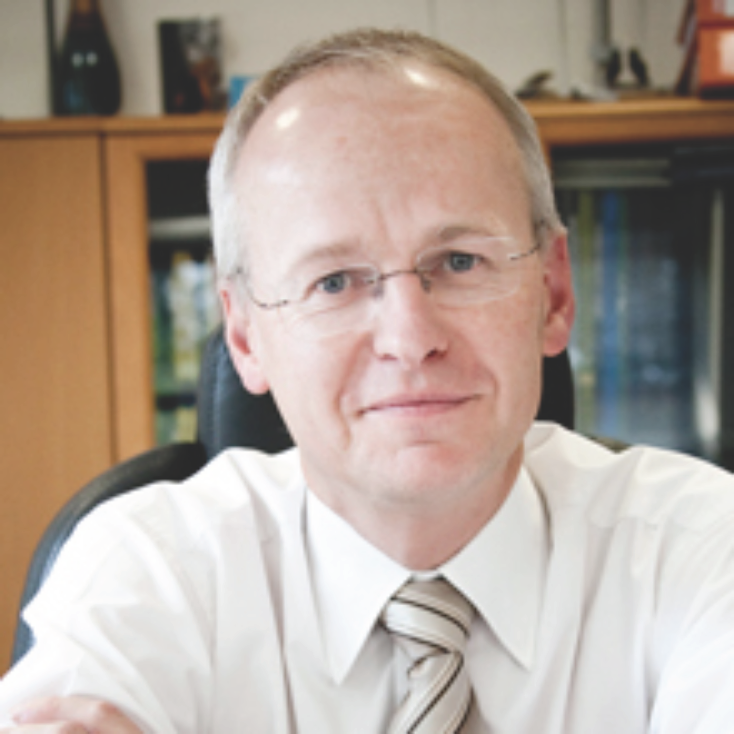 |
|
Dr. Jo Bury has a Master’s degree in Pharmacy and is PhD in Pharmaceutical Sciences (University of Gent). He obtained an MBA degree at the Vlerick School for Management in Gent. After performing scientific research in the field of atherosclerosis during several years, he has made a career in science policy. He previously held the post of Operational Director of VLAB (Flanders’ Action Programme on Biotechnology) and science advisor at federal and regional granting bodies (IWONL-IRSIA, IWT). He is the director and founder of VIB (Vlaams Instituut voor Biotechnologie) and member of the European Innovation Council (EIC). Under his leadership, VIB has become one of the leading life sciences institutes in Europe. VIB is widely recognized as an established and world-leading knowledge center in life sciences and biotechnology with an excellent reputation in technology transfer. The unique combination of strategic basic research and a clear focus on innovation & business is one of the major contributors to its success. VIB actively develops technology platforms and asset portfolios as a basis for starting up new biotech companies in the close proximity of its research centers. These companies employ about 1.000 employees in Flanders. In 2015 VIB was co-founder of the VIB-linked venture capital fund V-BIO (76 M€). Moreover, due to an innovative biotech ecosystem, foreign biotech companies are attracted to the biotech cluster in Flanders employing another 800 employees in Flanders. VIB pro-actively communicates about life science research and its biotechnology applications to a wide audience in Flanders and beyond. Mandate as CRG Scientific Advisory Board member: 01 April 2021- 31 March 2025 (1st term) |
|
| Dr. Geneviève Almouzni Head of the Chromatin Dynamics team, Research Center at the Institut Curie, France |
 |
|
Dr. Geneviève Almouzni, PhD (EMBO member, Member of the French Academy of Sciences, fellow of the American Association for the Advancement of Sciences, Director of the Research Center of the Institut Curie from sept 2013 to September 2018 and honorary director since then) is principal investigator of the chromatin dynamics team in the nuclear dynamics research Unit since 1999. She is a world leader in understanding genome organization and function during development and disease in particular in cancer. She has combined biochemistry, cell biology and physical approaches with advanced imaging to explore chromatin dynamics. She served on the EMBO Council (Vice-chair in 2014), chair of the alliance EU-LIFE, she co-chairs the European FETFlagship initiative LifeTime with Prof. N. Rajewsky at the MDC Berlin., PhD (EMBO member, Member of the French Academy of Sciences, fellow of the American Association for the Advancement of Sciences, Director of the Research Center of the Institut Curie from sept 2013 to September 2018 and honorary director since then) is director of research exceptional class at the CNRS. Mandate CRG Scientific Advisory Board member: 01 April 2021- 31 March 2025 (1st term) |
|
| Dr. Michael N. Hall Professor of Biochemistry, Biozentrum, University of Basel, Switzerland |
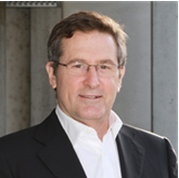 |
|
Dr. Michael N. Hall received his Ph.D. from Harvard University and was a postdoctoral fellow at the Pasteur Institute (Paris, France) and the University of California, San Francisco. He joined the Biozentrum of the University of Basel (Switzerland) in 1987 where he is currently Professor and former Chair of Biochemistry. Dr. Hall is a pioneer in the fields of TOR signaling and cell growth control. In 1991, Dr. Hall and colleagues discovered TOR (Target of Rapamycin) and subsequently elucidated its role as a central controller of cell growth and metabolism. The discovery of TOR led to a fundamental change in how one thinks of cell growth. It is not a spontaneous process that just happens when building blocks (nutrients) are available, but rather a highly regulated, plastic process controlled by TOR-dependent signaling pathways. As a central controller of cell growth and metabolism, TOR plays a key role in development, aging, and disease. Dr. Hall is a member of the US National Academy of Sciences and has received numerous awards, including the Breakthrough Prize in Life Sciences (2014) and the Albert Lasker Award for Basic Medical Research (2017). Mandate CRG Scientific Advisory Board member: 01 April 2021- 31 March 2025 (1st term) |
|
| Dr. Janna Saarela Director, Centre for Molecular Medicine, Norway; Research Director, Institute for Molecular Medicine, Finland |
 |
|
Dr. Janna Saarela received her M.D. in 1996, her PhD in 1998 and has been a resident at the University Hospital of Oulu and the Hospital for Children and Adolescents, Helsinki University Central Hospital. She worked as a postdoctoral fellow at the National Public Health Institute, Finland (1998) and at the David Geffen School of Medicine at UCLA, Dept. Human Genetics (1998-2000). Dr. Saarela served as Senior Researcher, Head of the Biotechnology Unit, at the National Public Health Institute and co-coordinated the Biomedicum Biochip Centre core unit, 2001- 2008. She joined the Institute for Molecular Medicine Finland (FIMM), University of Helsinki in 2008, where she was Head of the FIMM Technology Centre. She became Assistant Director of FIMM in 2011. Currently she is the new director of the Centre for Molecular Medicine Norway (NCMM; Professor Janna Saarela joined the Centre for Molecular Medicine (NCMM ;https://www.med.uio.no/ncmm/english/) as Director in January 2019. She serves as a scientific expert in several international groups, such as European network on rare primary immunodeficiency, autoinflammatory and autoimmune diseases (ERN RITA), and International MS Genetics Consortium (IMSGC) and is involved in European expert groups for clinical NGS sequencing and personalized medicine. Her research group concentrates on the genomics of immune disorders, especially autoimmunity and immune dysregulation, and develops methods for safe management and sharing of sensitive health data. Mandate CRG Scientific Advisory Board member: 01 April 2021- 31 March 2025 (1st term) |
|
| Dr. Michael Snyder Stanford W. Ascherman Professor and Chair, Department of Genetics, Director, Center for Genomics and Personalized Medicine, US |
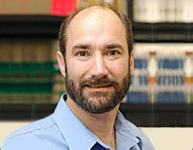 |
|
Dr. Michael Snyder received his Ph.D. training at the California Institute of Technology and carried out postdoctoral training at Stanford University. He is a leader in the field of functional genomics and proteomics, and one of the major participants of the ENCODE, HubMAP and HTAN projects. 1977 B.A, Chemistry and Biology, University of Rochester, NY 1978-1982 Ph.D. California Institute of Technology, CA Advisor: Dr. Norman Davidson 1982-1986 Postdoctoral Research Stanford University School of Medicine, CA Advisor: Dr. Ronald Davis 1986-2009 Faculty Dept of Molecular, Cellular and Developmental Biology, Yale University, New Haven, CT 2009-present Dept of Genetics, Stanford University School of Medicine, Stanford, CA. His laboratory has invented many omics technologies including protein arrays, ChIP-Chip, RNA-Seq, and paired end sequencing for mapping structural variation. Seminal findings from the Snyder laboratory include the discovery that much more of the human genome is transcribed and contains regulatory information than was previously appreciated, and a high diversity of transcription factor binding occurs both between and within species. He has also combined different state-of-the-art "omics" technologies to perform the first longitudinal detailed integrative personal omics profile (iPOP) of person and used this to assess disease risk and monitor disease states for personalized medicine. Dr. Snyder is the cofounder of Personalis, SensOmics, Qbio, January, Filtricine, Mirvie, Protos, and others. Dr Snyder is the author of the book: 'Genomics and Personalized Medicine: What Everyone Needs to Know'. Mandate CRG Scientific Advisory Board member: 01 April 2021- 31 March 2025 (1st term) |
|
| Dr. Sarah Teichmann Head of Cellular Genetics and Senior Group Leader, Wellcome Sanger Institut, UK |
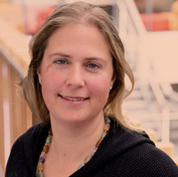 |
|
Dr. Sarah Teichmann did her PhD at the MRC Laboratory of Molecular Biology, Cambridge, UK and was a Beit Memorial Fellow at University College London. She started a group at the MRC Laboratory of Molecular Biology in 2001. In 2013, she moved to the Wellcome Genome Campus in Hinxton, Cambridge, where her group was joint between the EMBL-European Bioinformatics Institute and the Wellcome Sanger Institute. Dr. teichmann is an EMBO member and fellow of the Academy of Medical Sciences, and her work has been recognized by a number of prizes, including the Lister Prize, Biochemical Society Colworth Medal, Royal Society Crick Lecture and EMBO Gold Medal. From 2016, she is the Head of Cellular Genetics at the Wellcome Sanger Institute and a visiting research group leader at the European Bioinformatics Institute (EMBL-EBI). She serves as director of research (equivalent to Professor) in the Cavendish Laboratory [en.wikipedia.org] at the University of Cambridge and a senior research fellow at Churchill College, Cambridge. Dr. Teichmann is interested in global principles of protein interactions and gene expression. Her team uses single-cell approaches, so called “cell atlas” technologies, combined with human genetics at the cellular level. for further understanding of human health, development and disease. Mandate CRG Scientific Advisory Board member: 01 April 2021- 31 March 2025 (1st term) |
|
| Dr. Rudy Dekeyser Managing Partner of LSP’s Health Economics Funds |
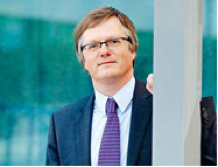 |
|
Dr. Rudy Dekeyser was a co-founder of VIB in 1995 and Managing Director of the research institute for 17 years, where he was responsible for all business development. Together with a highly professional team he managed to build a large patent estate, executed over 800 R&D and license agreements and established many biotech companies such as Devgen (acquired by Syngenta), CropDesign (acquired by BASF), Ablynx (acquired by Sanofi), ActoGeniX (acquired by Intrexon) and Multiplicom (acquired by Agilent). Rudy was a catalyst in the development of a strong cluster in Flanders by uniting the actors in the life sciences association FlandersBio, building bio-incubators and triggering the establishment of bio-accelerators. In 2012 he joined LSP to manage the newly established Health Economic Funds, one of Europe’s largest venture capital funds investing in medtech and digital health companies in Europe and the US. Throughout his career Rudy has been chairman and non-executive director at many company boards and is currently board member at Sequana Medical, Lumeon, reMYND, Celyad and EMBLEM (EMBL’s business arm). He also co-founded ASTP (the European association of science and technology transfer professionals) and Oncode (cancer research institute in The Netherlands). Rudy is member of the advisory board of multiple foundations active in advancing life sciences research and its translation into benefit for society. Dr. Rudy Dekeyser has a PhD in molecular biology from the University of Gent. Mandate CRG Scientific Advisory Board member: 01 April 2021- 31 March 2025 (1st term) |
|
